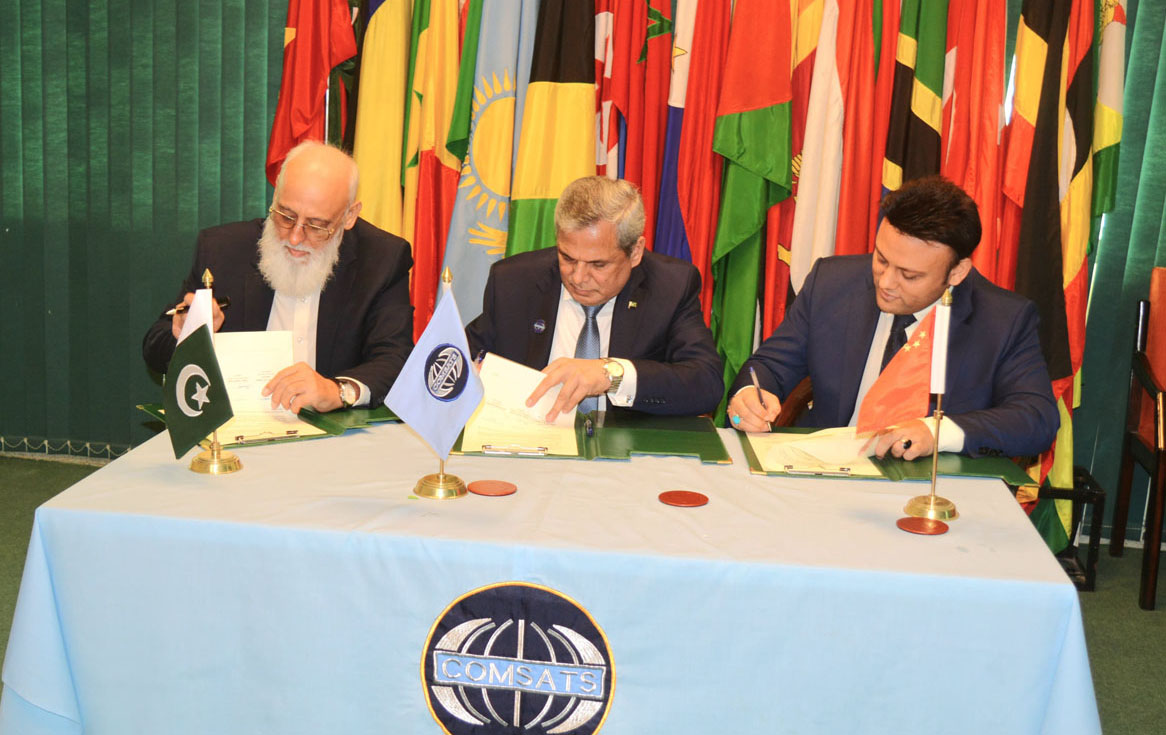On August 18, 2016, COMSATS organized the launching ceremony of Urdu translation of the book titled, “One Hundred Reasons to Be a Scientist”, which was originally published in 2004 by the Abdus Salam International Centre for Theoretical Physics (ICTP), Italy. The ceremony was presided over by former Rector International Islamic University Islamabad and renowned Literary Critic, Prof. Fateh Muhammad Malik. It was attended by more than 100 students and scholars from scientific, academic and literary circles.
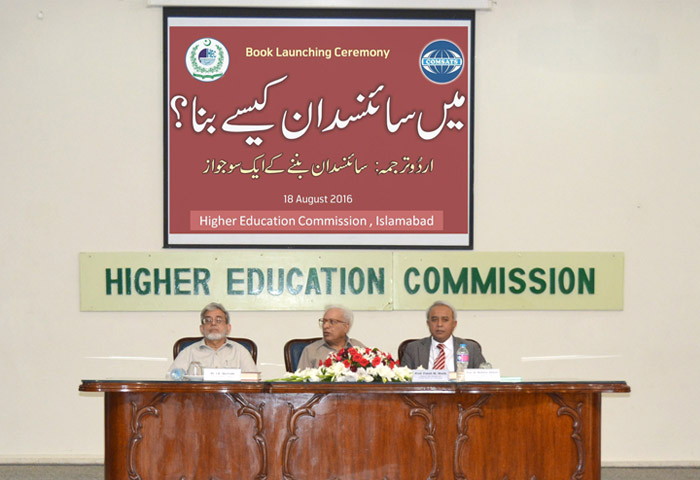 |
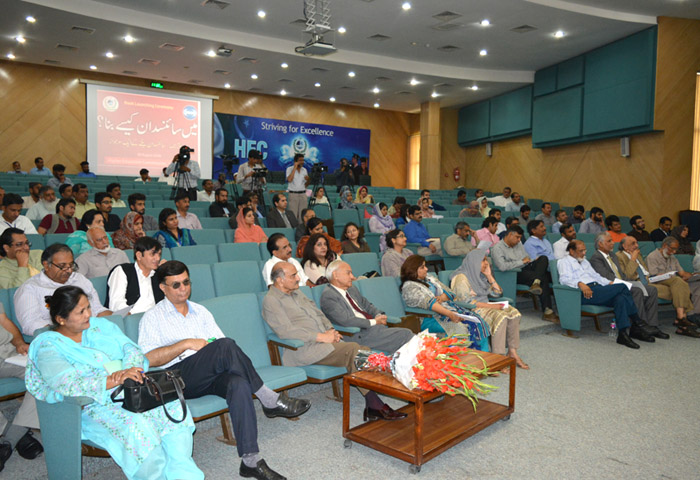 |
The book was translated under the editorship of Dr. I.E. Qureshi, Executive Director COMSATS, with the support of a panel of distinguished scientists and academicians. The National Language Promotion Department (NLPD) facilitated the translation process. It comprises of the life achievements of 91 contemporary scientists who played a major role in shaping the science and technology in the world during the course of last 50 years.
Prof. Malik deemed it a major achievement and a highly valuable addition to Urdu literature. He said, “Urdu translation of scientific literature, such as this book, is a commendable effort for scientific renaissance in our society”. He stressed the need to integrate science with society in such a way that art, literature, religion, and metaphysics all are absorbed in scientific pursuits.
 |
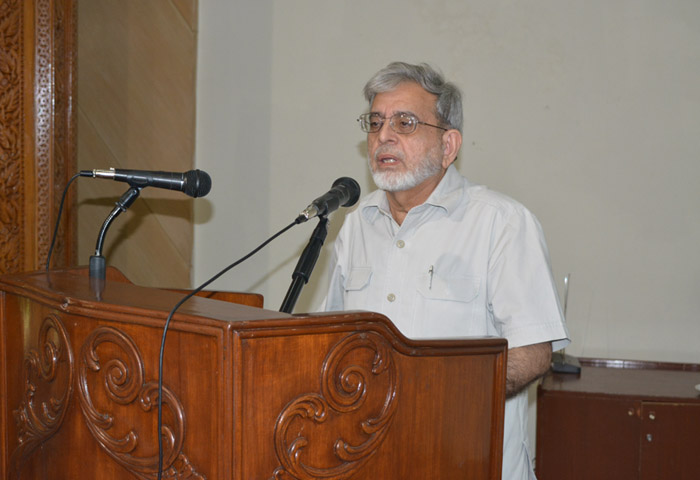 |
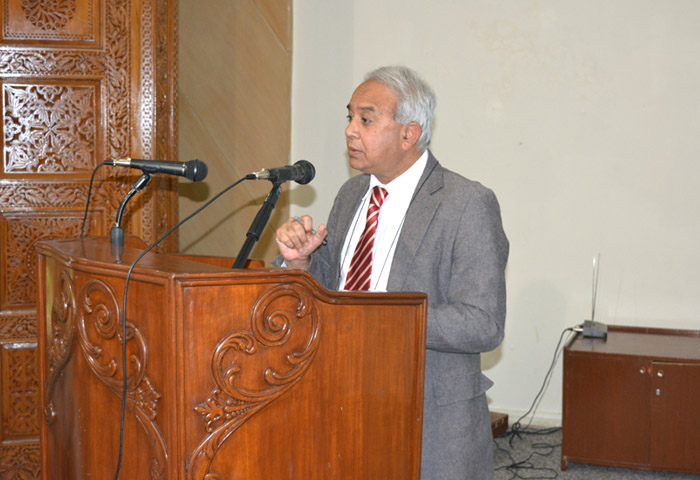 |
Dr. Qureshi said that it took enormous efforts to render this book into Urdu because of the brevity of articles and complexity of highly advanced scientific narrative. The aim of the book is to inspire our students to become scientists as science provides sustainable solutions to many of development issues in Pakistan and other countries of the South. He informed the audience that the book is available on COMSATS’ website and softcopy can be accessed free of cost.
Earlier, the Acting Executive Director of Higher Education Commission, Dr. Ghulam Raza Bhatti, in his welcome remarks, noted that information and its dissemination are two important ingredients of a knowledge-based society and said that COMSATS has done a wonderful job by translating this book in Urdu, which would help in spreading information about recent scientific discoveries across wider population of the country.
Dr. Anjum Hameed, Director, National Language Promotion Department (NLPD), read out the message of Mr. Irfan Siddiqui, Adviser to the Prime Minister on National History and Literary Heritage. While paying tribute to COMSATS Secretariat and COMSATS Institute of Information Technology for the initiative of translating and publishing this book, Mr. Siddiqui, in his message, said that Urdu version of the book would be a useful source for science education and popularization in Pakistan and inspire the young students to opt for science-related higher studies and careers. “This is an inspirational book that would instill scientific inquisitiveness in students”, Mr. Siddiqui said in his message.
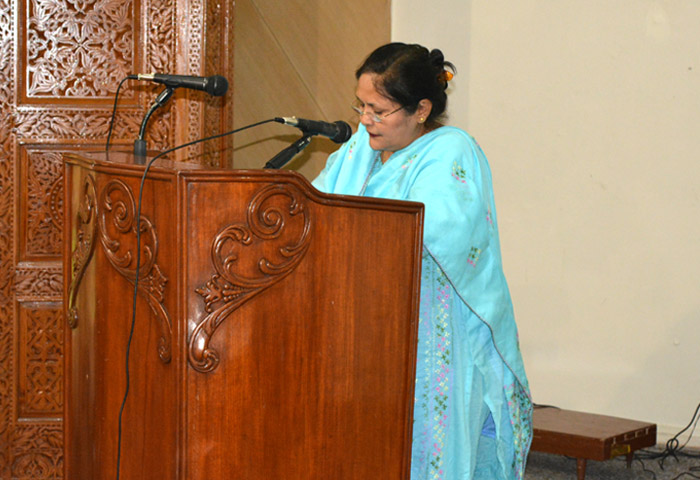 |
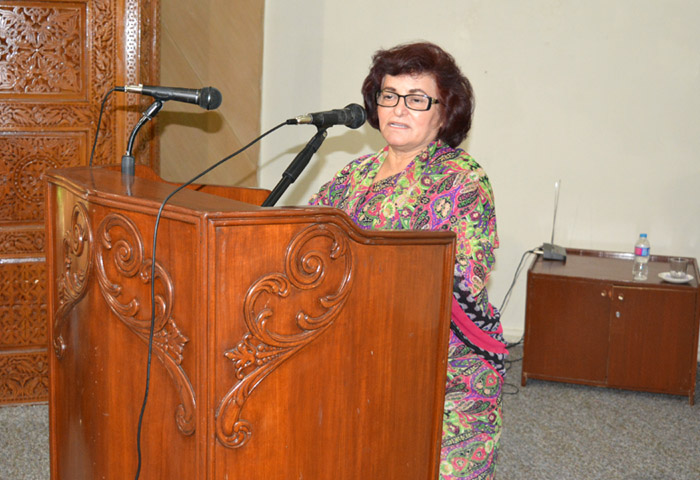 |
Advisors of CIIT, Ms. Syeda Nasreen Sultana, Dr. Ashraf Atta, Prof. Dr. M. Aslam Khan, and Dr. Mumtaz F. Jafri, also shared their remarks at the occasion. Ms. Sultana noted that translation of literature plays an important role in passing knowledge and information from one part of the world to another. She said that translation process of this book was well-concerted and well-coordinated effort and proved to be a learning experience for herself.
Dr. Aslam, in his remarks, said that there must also be an effort to translate syllabus books of science for better understanding by students. He added, “English language is important but additional science books in Urdu would help students in grasping the concepts in a better way”.
Addressing the gathering, Dr. Atta said that after reading this book, which covers contributing scientists’ background, childhood stories, challenging experiences in life, inspirations, discoveries and breakthroughs made in science, we find three types of scientists; one, who took interest in trying and experimenting with things in their early childhood; two, who read about inspirational stories of scientists and got fascinated; and three, who were influenced by their learned teachers. He opined that teaching science in native language was necessary for understanding scientific ideas more concretely. He also commended Dr. Qureshi for his persistence and assurance of high quality during the work of translating this book in Urdu language.
 |
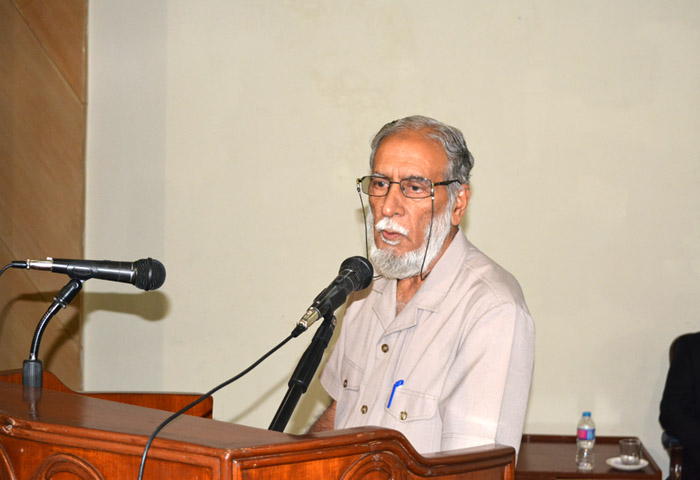 |
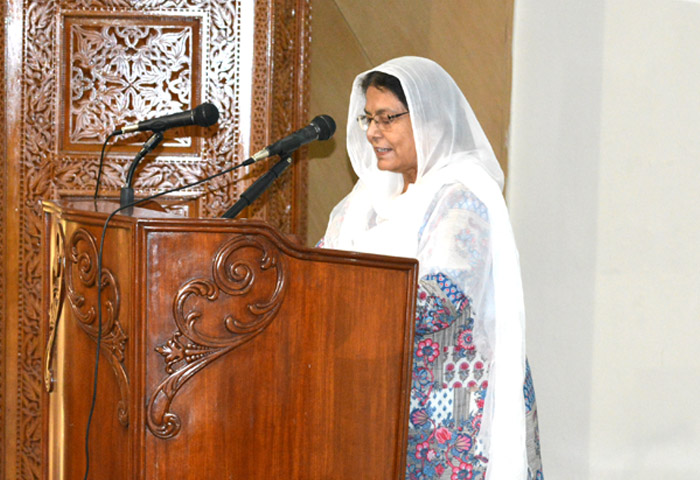 |
Dr. Mumtaz was of the view that study of science in our own language can help us grow as strong, self-reliant and prosperous nation. She was of the view that correct and coherent translation of a piece of literature breaks the barriers of time and space and reaches out to a wider audience. “Translation of internationally published books, like this one, and journals in a local language of a country can help it come out of isolation and promote the field of science and literature.”, she noted.
The ceremony concluded with distribution of complimentary copies of the book to representatives of academia, scientific institutions and media.


